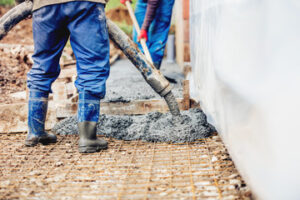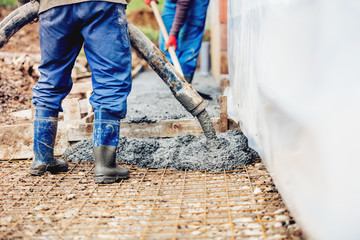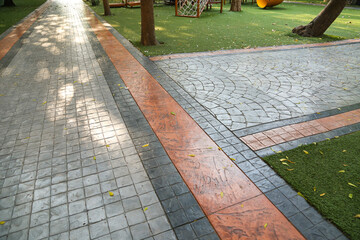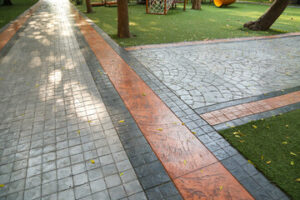Concrete Contractors McKinney TX provide a critical service to construction projects. They are responsible for creating a strong foundation, and they use their knowledge of concrete materials and techniques to create durable and aesthetically pleasing structures.
When choosing a concrete contractor, consider their professionalism and customer service skills. They should be able to answer questions and provide estimates clearly and quickly.
Concrete contractors have extensive knowledge and experience working with a variety of construction materials and techniques. They use this expertise to complete projects quickly and efficiently, saving both time and money for clients. They also have a strong understanding of building codes and regulations, ensuring that their work is safe and meets industry standards. Expert contractors have excellent communication skills and are able to collaborate with architects, engineers, and other construction professionals to prevent delays and ensure that the project is on schedule.
The quality of a contractor’s work can be assessed by looking at their portfolio, which they should have available on their website. In addition, it is important to ask the contractor about their past projects and to seek out references from previous clients. It is recommended that you request quotes from multiple contractors to compare prices and services and make an informed decision.
Inquire about the contractor’s licenses and insurance coverage. A reputable contractor should be happy to showcase their credentials, as this shows that they are qualified and comply with local building regulations. It is also essential to check whether a contractor has liability insurance in case an accident or injury occurs on the job site.
When choosing a concrete contractor, look for someone with a long track record of successful projects and satisfied clients. Ask the contractor for details about their past projects, including specifications, pricing, and timelines. It is also helpful to review photos of past projects, as this will give you an idea about the contractor’s skill level and quality of work.
Another consideration is the contractor’s ability to problem-solve and respond to any challenges that may arise during construction. A good concrete contractor will have in-depth technical knowledge of different types of concrete and their best applications, as well as a thorough understanding of construction processes and safety protocols. They will be able to resolve issues such as formwork problems, concrete placement difficulties, and curing delays. They will also be able to recommend cost-effective solutions and alternative materials when necessary.
Reputation
Choosing the right Concrete Contractors will ensure that your project gets finished on time, within budget and with exceptional quality. A good contractor will have a solid reputation in the industry and will be willing to provide references from previous clients. You should also ask for testimonials and check their website for images of past work projects. A good contractor will be happy to provide you with this information, and you can also visit third-party websites like Angi (formerly Angie’s List) or HomeAdvisor to see customer reviews of contractors in your area.
Reputable contractors will be familiar with local building codes and other regulations that may affect your construction project. They will be able to guide you through the permit process and ensure that all necessary inspections are completed. This will save you time and money and help you avoid costly mistakes. They will use high-quality materials and advanced tools to minimize costs and achieve a polished finish for your concrete work.
When discussing a project timeline with contractors, look for one who is proactive about communicating potential hurdles and can adjust plans accordingly. Reliable contractors will also be able to answer any questions that you may have about the project and will keep you updated throughout the construction process.
A quality contractor should be able to deliver consistent results and provide a long-term warranty on their work. They should be licensed and insured, which will protect you in case of any damages or accidents that might occur during the project. It’s important to get a written contract from your contractor that clearly outlines the project details, timelines, costs, warranties and other essential terms of service.
Reputable contractors will be honest and upfront about their pricing, which is especially important if you’re on a tight budget. They’ll also be able to provide you with estimates based on the size and complexity of your project, as well as any unique requirements. If you have any concerns about the cost of a concrete project, ask your contractors about their pricing policies and whether they offer discounts for repeat customers.
Attention to detail
Concrete Contractors take your construction vision and make it a tangible reality. They meticulously plan each stage of your project, ensuring that every aspect is executed with care. This attention to detail allows them to achieve exceptional results while saving you time and money.
During your vetting process, ask potential contractors for detailed timelines and progress updates. This will give you a good sense of whether or not they can complete your project within the agreed upon timeframe while upholding quality standards. It’s also important to know what contingency plans they have in place in case of unexpected challenges or delays.
Effective communication is another key factor to consider when selecting a concrete contractor. They should be able to listen to your ideas, concerns, and preferences and provide clear explanations and professional advice throughout the project. They should also be able to address your questions and concerns in a timely manner.
Ask the contractor to explain their approach to concrete repair and what they can do to restore strength, stability, and durability. Find out what concrete mix designs and techniques they use, as well as any testing or inspections they perform on finished work. Also, inquire about their methods for finishing concrete, as this can have a significant impact on the overall look and feel of your finished construction.
When choosing a concrete contractor, it’s essential to make sure that they have the proper licenses and insurance coverage to operate within your local area. Ensure that they have general liability and workers’ compensation coverage, as well as automobile insurance in case of any accidents or injuries on the jobsite.
Lastly, be sure to ask the concrete contractor about their warranty policy. A reputable contractor will stand behind their work and offer a comprehensive workmanship warranty that covers both materials and labor. If a contractor doesn’t offer a warranty, this may be a red flag that they are not reliable or trustworthy.
Concrete projects can be complex and costly, so it’s important to select a contractor who is experienced, has an excellent reputation, and has a solid commitment to quality work. By considering these factors, you can rest assured that your concrete project will be completed correctly the first time around.
Commitment to quality and safety
Choosing the right concrete contractor is an important decision that impacts the quality and longevity of your project. When evaluating contractors, consider their qualifications and experience, portfolios and references, detailed quotes and contracts, insurance and safety, communication and customer service, and problem-solving and flexibility.
Look for a contractor who prioritizes customer satisfaction and provides transparent and consistent communication throughout the project. Contractors with excellent customer service are responsive to your questions, explain technical details in an understandable manner, and keep you updated on the status of your project. They also go the extra mile to ensure that your construction project is completed on time and within budget.
Reputable concrete contractors provide comprehensive workmanship warranties and post-project follow-ups to address any concerns or repairs. They also offer cost-saving suggestions that reduce project expenses without compromising the quality of the finished product.
When assessing a contractor’s commitment to quality, look for certifications from reputable industry organizations and adherence to local standards and regulations. A solid track record of successful projects is another good indicator of their capabilities and reliability.
Examine a contractor’s worksite to ensure that it is clean, organized, and in compliance with the appropriate building codes and regulations. Also, ask about the contractor’s safety policies and whether they are willing to share their safety measures with you.
Evaluate a contractor’s commitment to quality and safety by looking at their work history and discussing their construction process with them. They should be able to provide you with examples of past projects that are similar in scale and scope to yours, as well as client testimonials. Additionally, ask about any relevant certifications or training they have received in specialized areas of concrete construction. This will demonstrate their knowledge and expertise in the area, as well as their commitment to staying up-to-date with the latest industry standards and best practices. Also, look for a contractor who offers competitive pricing and a clear payment schedule. This will help you establish a realistic project timeline and prevent any surprises. Finally, make sure that they provide detailed quotes and contracts that clearly lay out the project’s expectations and costs.



